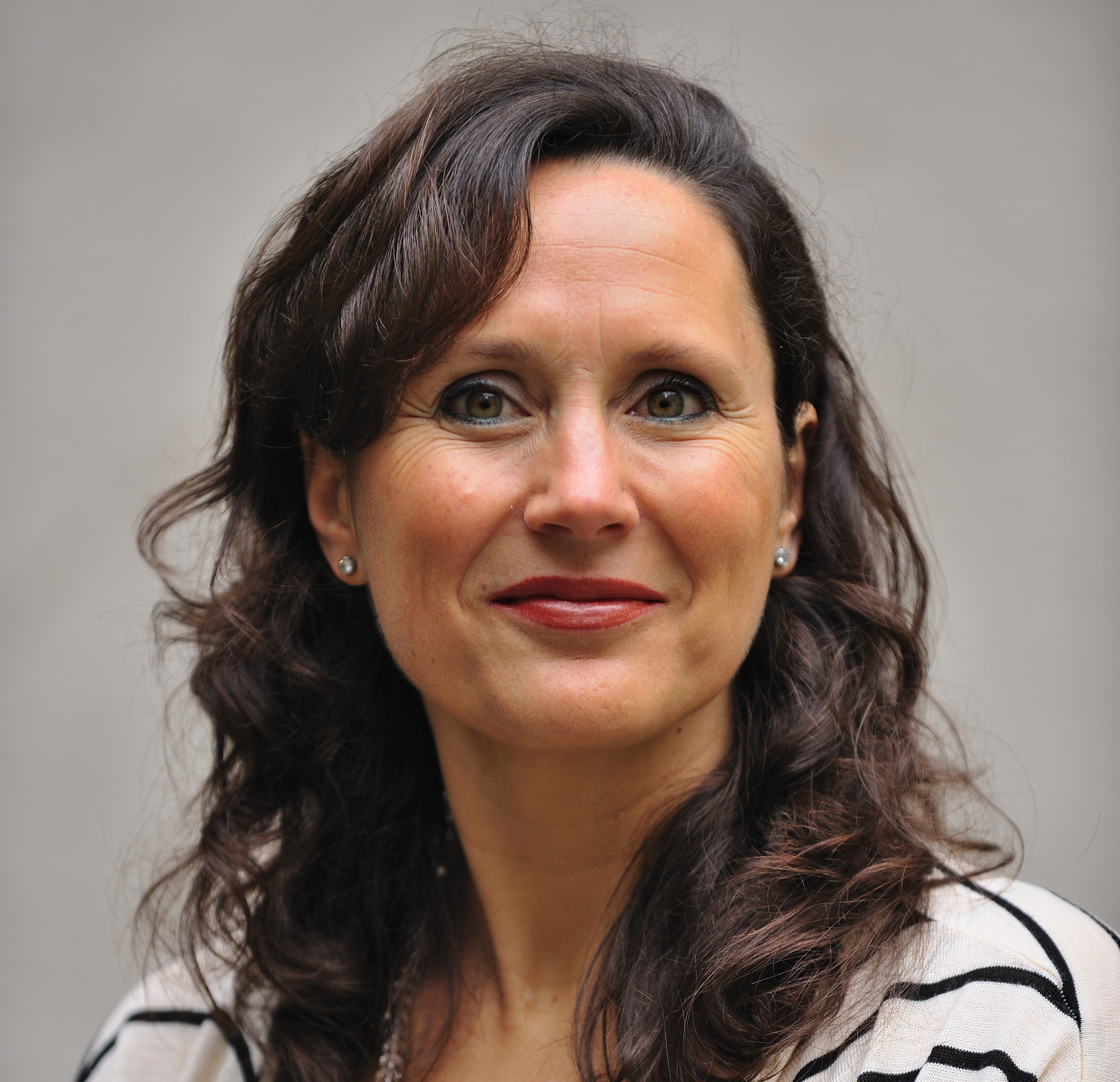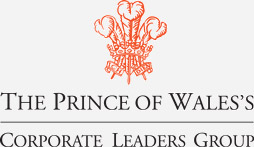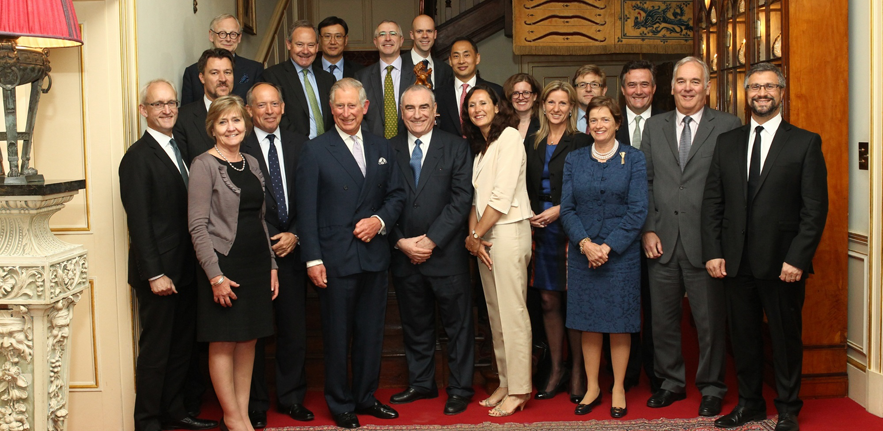Sandrine Dixson-Declève is Director at The Prince of Wales’s Corporate Leaders Group, a group of European business leaders working to advocate solutions on climate change to policymakers and business peers.
What are your expectations from next month’s COP-21 conference?
I think we’re entering into COP 21 with a much better idea of the outcomes we want to get. At the moment, we’re very much trying to manage expectations, so that we don’t have a disastrous situation like we did post-Copenhagen.


Good INDCs (intended nationally determined contributions) have come forwards. They’re not as powerful as we’d have liked, bringing us to somewhere between a 2.7°C and 3°C temperature rise by 2050. But although we are not yet on track to achieve our 2°C goal, we do feel that this COP has brought together more countries, and enforced a real set of commitments. If implemented properly, those commitments could make a huge difference to the trajectory we’re on.
We also need to consider the large number of complementary actions and measures that have been promised from the business and investment communities, as well as other non-state actors. By coupling these together with the INDCs, we have a much better chance of hitting our 2°C goal.
More specifically, what is The Prince of Wales’s Corporate Leaders Group calling for?
Well, firstly, The Corporate Leaders Group is pushing for a very clear long-term goal, which includes a global commitment for net-zero emissions by the end of the century. Within that, we continue to put pressure on the European leadership to make sure that by 2050, we meet our own goal for at least 80-95% reductions in greenhouse gas emissions.
In addition, we’ve been advocating for “five year cycles” – which is translated into ensuring that there is a continuous review and update process from different regions, which is continually readjusted. We also need to take innovation into consideration, as well as new breakthrough technologies that could push some countries to reach their targets faster.
It’s absolutely fundamental to ensure that we move towards the 100 billion commitment that has been promised to developing countries. Until we are able to promise climate finance for mitigation and adaptation, we will not get developing countries to move forwards in implementing their INDCs.
How about for European business?
There are two other points that are fundamental for business. The first is a carbon pricing mechanism. Ideally we’d like to have seen a reference to the importance of carbon pricing. But I understand this is pretty much off the table, and so we’re pushing at least from some type of indirect reference to market mechanisms and costing externalities.
This had been one of the focal points of the Corporate Leaders Group’s work over the last 10 years and we are doing a lot of work with the World Bank and Carbon Pricing Coalition to ensure that both companies introduce shadow pricing and that governments put in place the right carbon pricing schemes. It’s not that the European emission trading system is perfect – just that we need to figure out how to move forward on a global level, towards the development of smart pricing mechanisms in different countries.
The flip-side of that is fossil fuel subsidy reform. It’s also very important for companies to come forward and pledge to the elimination of fossil fuel subsidies. This is a perverse mechanism that’s stimulating continued investments into high-carbon energy. Now’s the time to start phasing out fossil fuel subsidies especially because the price of oil is currently quite low.

You spoke of complementary measures. Have you been involved in those directly?
Yes, definitely. At The Prince of Wales’s Corporate Group, and also through our role in the We Mean Businesscoalition (bringing together 7 major business organisations including The Prince of Wales’s Corporate Leaders Group), we’ve been looking at a series of complementary actions, from carbon pricing to fossil fuels subsidy reform. Then there’s a whole load of other work being done, for example around technology enhancement and net-zero buildings.
We’re also part of a broader discussion on how to bridge the gap, and assess what those commitments actually deliver, in addition to the INDCs. Through that assessment, we can get a much better idea of how far the INDCs and joint commitments will take us towards our 2°C target, and by which timeline.
The EU metals industry is pushing for a globally binding agreement, which helps to establish level playing field conditions. Would you have any words for us and other energy-intensive sectors?
My message would be that we need to work hand-in-hand with European manufacturing sectors as they move closer to decarbonisation.
Some are obviously restrained because of global competition. I don’t want to go into the carbon leakage debate, and whether or not that’s real. Instead, let’s go beyond that. We’re already having a very healthy conversation with the metals industry and other energy intensive sectors, on both the key challenges and possible solutions.
Unfortunately, the way the political dynamics have been set-up, there has historically been a more conflictual engagement around the challenges, rather than a positive conversation about potential solutions, and how to start creating low-carbon value chains.
How can we change that?
One of the ways we want to change that is to bring the finance sector directly into conversation with European businesses, in order to find out where they see their technologies going, as well as their key investment needs for maximising their role in this low-carbon journey.
For example, the metals industry is really well placed to have a positive conversation about resource efficiency and the circular economy approach. That needs to be brought to the attention of policy-makers, and linked-up with the climate conversation.
I think that’s really important, as it’s fundamental to keep the manufacturing sector within Europe wherever possible.
You mentioned that follow-up actions would be especially important. What will be needed?
Post-Paris, we absolutely need to hit the ground running. We need to ensure that the right structures are in place for different countries to fulfil their INDCs, and also to give the right signals back to European industry.
A dialogue with all sectors of European industry is fundamental, I think it’s really important that we continue to push for other countries to implement their commitments, to give the right signal that Europe is no longer alone.
And what about monitoring and verification?
Yes, that's definitely another important question - for both the INDCs and the different commitments from non-state actors. We need to start translating those commitments into practical standards and criteria, making sure we have the right framework to ensure accountability.
This will enable business to continue innovating and investing into R&D, and feel comfortable that they aren’t losing out – both in terms of their profit margins and their employment and job creation. That’s fundamental to ensure that at least in Europe, we continue to stay strong and build our economy.
That’s the last point I want to make. If we’re able to bring the Energy Union and the 2030 Climate and Energy Package together with a smart industrial package, we can move Europe into a real innovation and investment space. That will only do positive things for Europe and its businesses.
Thanks!
Click here to find out more about the Corporate Leaders Groups' COP 21 activities.